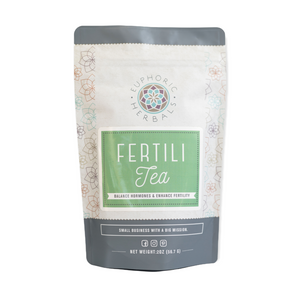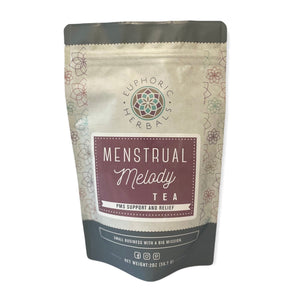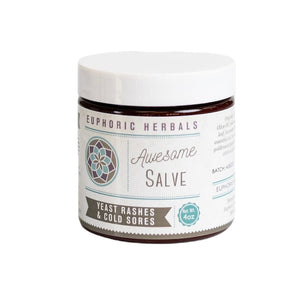What causes decreased milk supply?
Now that you are ready to start breastfeeding, you might be wondering what could potentially affect your breastmilk supply. Maybe you are already experiencing a shortage and are trying to figure out what is happening. There are many factors that will interfere with lactogenesis, or the process that the body uses to make milk. Some of the issues involve health problems, while others may be involved with your lifestyle and daily choices.
Fortunately, there are ways to turn everything around to ensure that you will produce enough milk for your little one. Here are some things that can decrease your milk production, so you know what to avoid and watch out for.
1. Feeling Anxious or Stressed
Believe it or not, stress happens to be the number one cause in limited breastmilk supply—particularly the first couple of weeks after delivery. When you are deprived of sleep, struggling to adapt to the baby’s schedule, dealing with dramatically changing hormone levels, and more, your body starts to flood with cortisol. Some women get so stressed out that their breastmilk supply will dry up in under 24 hours.
While breastfeeding is important, your mental health is priority. Without your health, you will not be able to properly care for your child. If you or your loved one sees the signs of anxiety, stress, or postpartum depression, you should not wait to get adequate medical care. Remember that you are not alone in this journey. Seek aid from friends, family, and medical professionals who can guide you towards recover and help you learn coping skills to get through the stress.
2. Health Issues
The condition of your physical and mental health greatly influences the production of milk. Any untreated medical condition that puts stress on the body will impede your milk supply. Sometimes, you may simply be sleep deprived and require more rest. In that event, you should take naps whenever the baby is napping, breastfeed in a supine position (with your feet up or lying down on your bed), and you should enlist your partner, family, and friends to help out with the chores so you can rest.
However, you might also have certain hormonal or endocrine issues. Women who have polycystic ovary syndrome (PCOS), hyper- or hypothyroidism, hypertension, diabetes, or other hormonal issues will not only have difficulty conceiving, they may also run into problems with their milk supply.
You might also want to find out if your baby’s health is good. A child that is suffering from gastrointestinal discomfort or other health issues may not want to eat; and you may be confusing this for poor or low milk supply.
3. Not Paying Attention To Your Nutrition
What you consume will have a direct effect on your body, including your milk production. Breastfeeding mothers have a higher caloric demand than those who are feeding their babies with formula. In fact, you need about 500 calories more than someone who is using formula. This means that having a healthy meal plan full of essential nutrients is pivotal. Drink more fluids and eat superfoods that boost your supply, such as:
- Oatmeal
- Barley
- Almonds
- Chickpeas
- Dark leafy greens
- Coconut
4. Using Excessive Spices and Herbs
Similar to the third point, what you eat and drink can affect your milk supply. Some woman decide to use certain herbs and spices that work as galactagogues to increase their milk production, but others were negate the effects or even counteract other ingredients in your food. Of course, everything can be consumed in moderation, but you should be careful about using large amounts of certain herbs, including peppermint, sage, parsley, oregano, yarrow, and jasmine.
Instead, you should use spices and herbs noted for breast health and milk production, such as garlic, ginger, alfalfa, fennel, and fenugreek.
5. Smoking Cigarettes and Drinking Alcohol
Your lifestyle choices are going to catch up with you in the long run. There is a reason why expecting mothers should never pick up a cigarette or alcohol beverage and need to avoid secondhand smoke. The medical issues that arise from exposure are too problematic and even life-threatening. Even after your baby is born, you should avoid smoking and drinking.
Smoking, for one, will interfere with the oxytocin levels. You need oxytocin for the let-down effect, which is necessary for the release of milk stored inside your breasts. Since the body often operates on an all-or-nothing pattern, if you don’t have enough oxytocin, you risk losing the let-down, and your baby won’t get any milk.
If you have to smoke, avoid having a cigarette within two hours of the feeding session.
The same goes for alcohol. Much like smoking, alcohol has an impact on the let-down effect and can also alter the flavor of your breastmilk. Your baby will not find breastmilk appealing and will not want to feed. Furthermore, alcohol can be passed through your breastmilk and hinder your child’s development.
6. Drinking Too Much Caffeine
All of the sleepless nights you go through might mean that you have increased your dependence on a cup of coffee, soda, and tea, since they all contain caffeine. While caffeine is okay in moderation, it can be dangerous in larger doses. Caffeine will dehydrate your body, slowing the production of breastmilk or stopping it altogether.

Additionally, your baby will be affected by the caffeine in your system, because caffeine can pass through your system via milk. Since babies cannot process caffeine like older individuals, it will build up in the child and cause irritability.
If you are drinking more than four cups of coffee or soda a day, you should cut back to one or two servings. You may also want to swap in some decaffeinated tea or carbonated water to replace soda and coffee in the afternoon.
7. Certain Medications
Most medications are safe to consume while you are breastfeeding. That said, a few are not safe and may influence your milk supply Always check with your doctor and pharmacist before taking over-the-counter drugs or filling prescription medications.
Some OTC and prescription drugs have ingredients that inhibit the let-down reflex and stunt breastmilk production, including:
- Allergy, cold, and sinus medications. These contain a decongestant known as pseudoephedrine. It is present in Claritin-D, Advil Cold and Sinus, and Sudafed.
- Methergine
- Bromocriptine
- Some herbal supplements
8. Insufficient Glandular Tissue
There are various reasons why some women have breasts with insufficient amounts of glandular tissue and may be short on the milk-making ducts required for producing enough milk for an infant. While the mammary ducts do become more numerous during pregnancy and get stimulating during breastfeeding, it can be a problem with a first child. Usually during a second or third pregnancy, you will experience less of a problem.
If you have found out that you have inadequate mammary glands or ducts, there are ways to optimize your milk production. You might have to pump more, take prescription drugs, and take some galactagogues. Consider speaking with breastfeeding specialists, since they can guide you and provide support.
9. Sucking or Anatomical Problems
Sometimes the problem might not be your breasts at all. Sometimes the problem is with your little bundle of joy. Don’t worry, the issue is more common than you think! Many babies will develop a tongue-tie, which means that the thin membrane on the bottom of the baby’s mouth is holding too tightly onto the tongue. A baby with tongue-tie cannot get proper suction or get a decent rhythm with his tongue.
To check for tongue-tie, see if your baby can stick their tongue out over the bottom lip or if the tongue can touch the roof of the mouth when they cry. If your baby has tongue-tie, the membrane over the tongue can be taken care of by a doctor. That will help increase your baby’s ability to breastfeed rapidly.
Other sucking or anatomical problems include poor latching, cleft lip and palate, as well as allergies and stomach problems.
10. Environmental Toxins
Aside from everything else that can affect your milk supply, you must also worry about the environment in which you live and work. A study from 2006 reported that daughters of women who were born and raised in a pesticide-contaminated agricultural region in Mexico had less mammary tissue or no mammary tissue compared to daughters living at the hilltops of the same area, where the air was cleaner.
In other words, any environmental toxins, such as pollution, contaminated water, and pesticides on your produce, could have a negative impact on your body, starting from birth. If you think that the environment where you live is poor, you may need to take extra precautions when breastfeeding to maximize your and your child’s health.
11. No Nighttime Feeding
Nowadays, you can find a number of programs that help with sleep-training to keep your baby from waking everyone up in the middle of the night for feedings. However, while these techniques can come with a benefit, the loss of nighttime meals can cause problems. Sometimes, the baby cannot gain enough weight; and since there is less of a demand for breastmilk, your supply will decrease.
Furthermore, the levels of prolactin, the hormone needed for milk production, is higher at night, so you should actually be taking advantage of nighttime meals instead of avoiding them all the time.
12. Postpartum Hemorrhage
Birth can be frightening. Another scary experience would be a postpartum hemorrhage. It adds insult to injury to know that a traumatic birth and the remaining stress of losing such a large amount of blood could hurt your milk supply. Indeed, postpartum hemorrhage is often guilty of inhibiting lactogenesis. If you suffered from a hemorrhage, you will have to recover first before your body can begin producing milk.
But that doesn’t mean you should get discouraged. Pump often and breastfeed whenever you get the chance. Your body will soon respond to the demand.
Final Thoughts
If you are struggling with making enough milk for your baby, the cause may be one of the things in this list. Once you have identified what the contributing factors are, you can then work to correct the problem. All in all, you have to take care of yourself, get enough rest, eat properly, and get enough fluids. If that does not help increase your milk production, it may be time to think about the medications you are on or if one of your lifestyle choices is to blame. In the event your decreased milk supply is caused by a health issue or something else that you cannot avoid, you should discuss options with a medical professional or breastfeeding specialist.
Did you enjoy this article? Have more questions about decreased breastmilk supply that were not answered here? Then feel free to fill out the contact form to receive more information today.














































































































































































